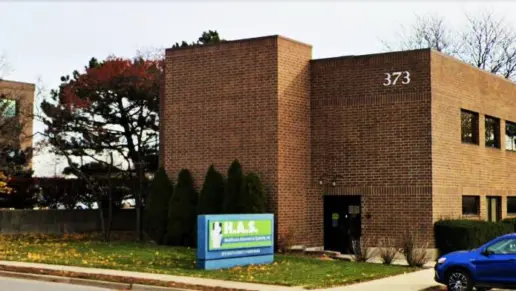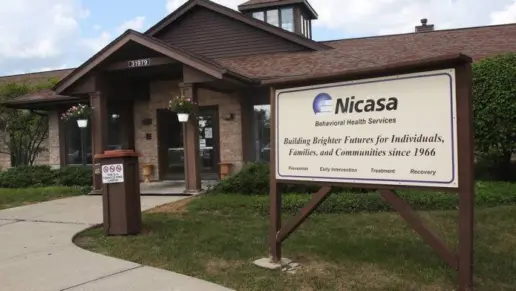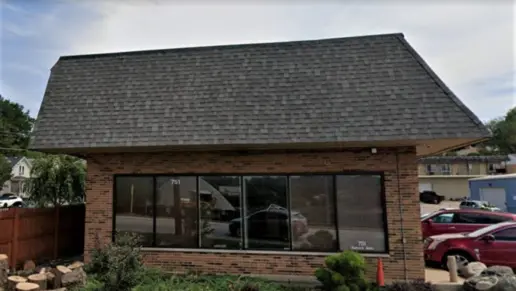Their primary goal is to belittle you and break your spirit, allowing them to swoop in and take complete control of your mind as they brainwash you! They laughed about me being homeless. Told me God was torturing me with a migraine, because I was being defiant because I was ...
About Mission Teens – First Fruits MBTC
Situated in Jerseyville, Illinois, Mission Teens – First Fruits MBTC is a drug and alcohol treatment center for adults with substance use disorders. They also provide valuable community resources, including referrals, and family support services.
Mission Teens is a non-denominational Christian discipleship ministry that supports individuals through their faith-based addiction-related program. Services are offered on an inpatient basis and include counseling, residential addiction treatment, sober living, and Christian-related programming.
Substance Use Disorder Treatment
Mission Teen’s addiction treatment programs rely on Christian principles to treat addiction and mental health conditions through developing a relationship with a higher power and discipleship. The program has a rigid training program with four phases. Each phase lasts two to four months and includes five and a half hours of Bible Study per day, chores, household responsibilities, and counselor training. Privileges are earned over time, such as phone calls and visits from immediate family members. Upon completion, residents are offered an additional ten to twelve month staff training program.
The residential program is open to adults aged over 18, who must complete an application process, drug and pregnancy testing before admission.
Latest Reviews
Location
Location
Accepted Insurance
Other Forms of Payment
Self-pay involves paying for treatment out of your own pocket. You can use savings or credit, get a personal loan, or receive help from family and friends to fund your treatment. If you don't have insurance or your insurance plan doesn't cover a specific program, self-pay can help ensure you still get the care you need.
Sliding scale payments are based on a client's income and family size. The goal is to make treatment affordable to everyone. By taking these factors into account, addiction recovery care providers help ensure that your treatment does not become a financial burden to you or your family, eliminating one barrier to care.
Medicaid is a state based program that helps lower-income individuals and families pay for healthcare. Medicaid covers addiction treatment so those enrolled can use their coverage to pay for rehab. When a program accepts Medicaid the client often pays very little or nothing out of their own pocket.
Medicare is a federal program that provides health insurance for those 65 and older. It also serves people under 65 with chronic and disabling health challenges. To use Medicare for addiction treatment you need to find a program that accepts Medicare and is in network with your plan. Out of pocket costs and preauthorization requirements vary, so always check with your provider.
Addiction Treatments
Levels of Care
Treatments
The goal of treatment for alcoholism is abstinence. Those with poor social support, poor motivation, or psychiatric disorders tend to relapse within a few years of treatment. For these people, success is measured by longer periods of abstinence, reduced use of alcohol, better health, and improved social functioning. Recovery and Maintenance are usually based on 12 step programs and AA meetings.
Drug rehab in Illinois is designed to help people recover from addiction to a number of substances. The length of each program and its intensity tend to vary, and the plan of care is based on your individual needs.
A combined mental health and substance abuse rehab has the staff and resources available to handle individuals with both mental health and substance abuse issues. It can be challenging to determine where a specific symptom stems from (a mental health issue or an issue related to substance abuse), so mental health and substance abuse professionals are helpful in detangling symptoms and keeping treatment on track.
Opioid rehabs specialize in supporting those recovering from opioid addiction. They treat those suffering from addiction to illegal opioids like heroin, as well as prescription drugs like oxycodone. These centers typically combine both physical as well as mental and emotional support to help stop addiction. Physical support often includes medical detox and subsequent medical support (including medication), and mental support includes in-depth therapy to address the underlying causes of addiction.
Programs




Clinical Services
Group therapy is any therapeutic work that happens in a group (not one-on-one). There are a number of different group therapy modalities, including support groups, experiential therapy, psycho-education, and more. Group therapy involves treatment as well as processing interaction between group members.
Life skills trainings involve all the skills a person must have in order to function successfully in the world. These include time management, career guidance, money management, and effective communication. Truly successful addiction recovery is based on the ability to not only live substance-free, but to thrive. Life skills teaches the practical necessities of functioning in society, which sets clients up for success in life, and therefore sobriety.
Amenities
-
Private Setting
Contact Information
28251 IL - 16
Jerseyville, IL 62052



